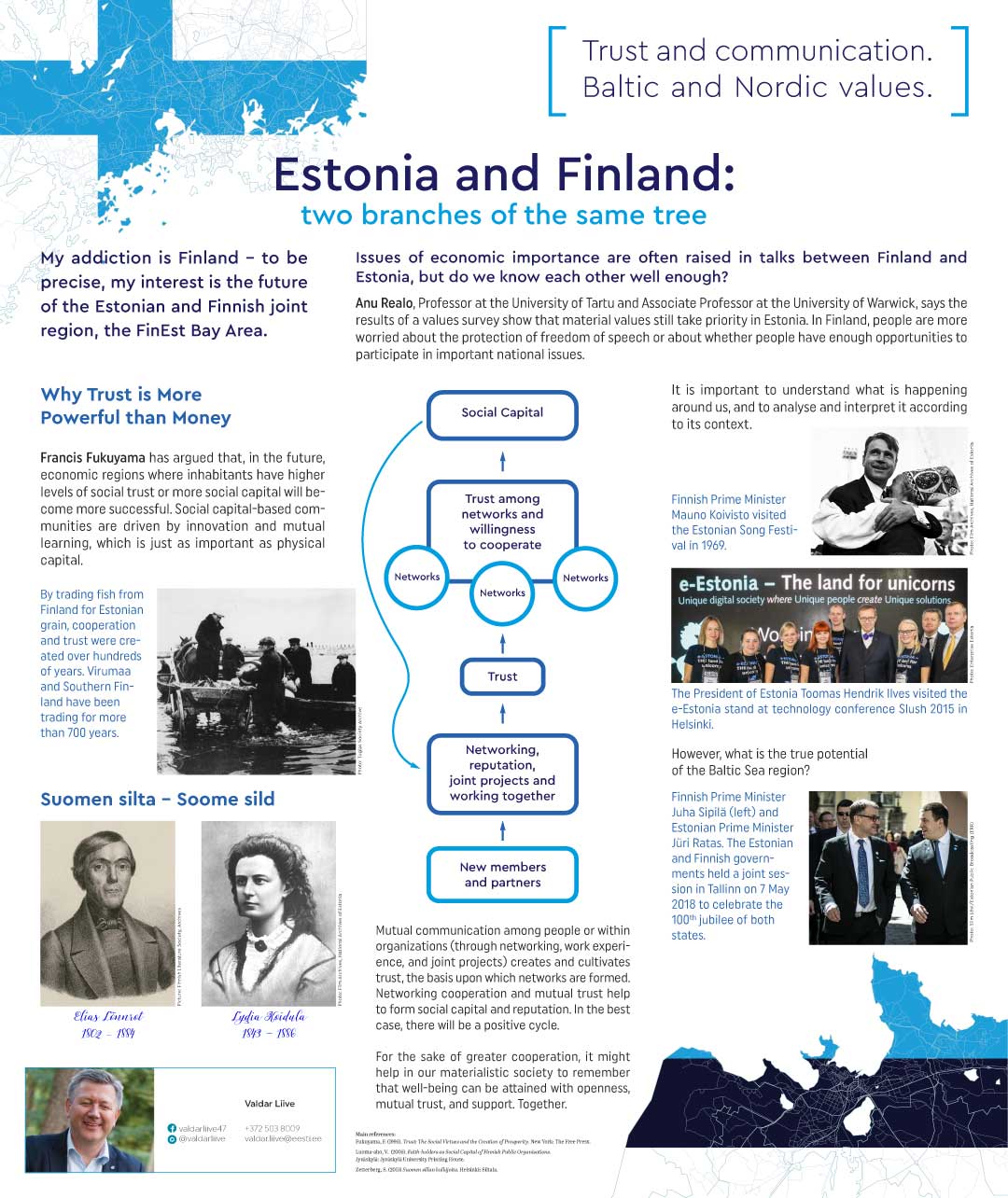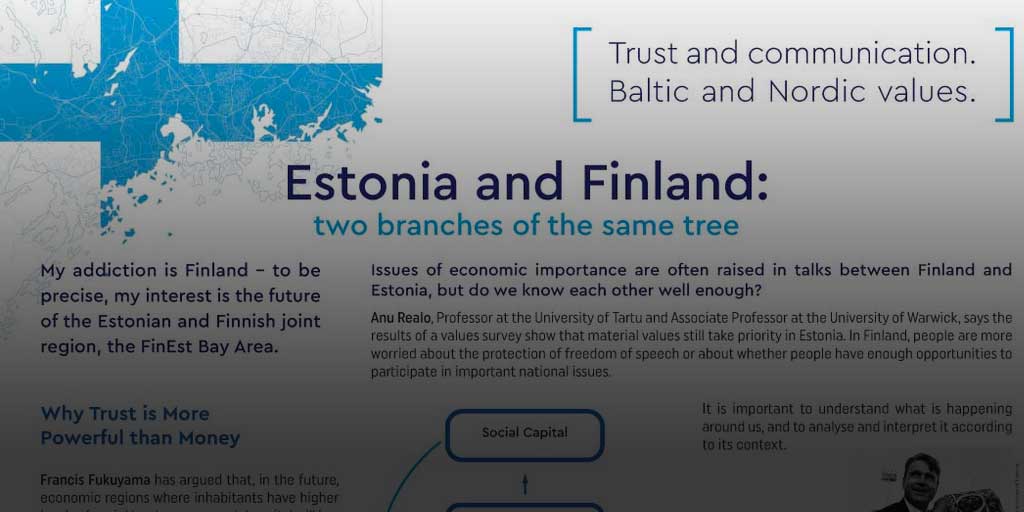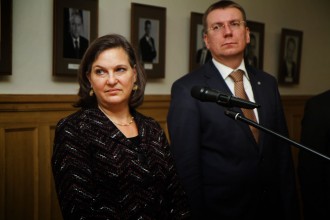Issues of economic importance are often raised in talks between Finland and Estonia, but do we know each other well enough?
Anu Realo, Professor at the University of Tartu and Associate Professor at the University of Warwick, says the results of a values survey show that material values still take priority in Estonia. In Finland, people are more worried about the protection of freedom of speech or about whether people have enough opportunities to participate in important national issues. This may be the reason why Estonians’ cooperation with its northern neighbors is good within concrete, professional networks, but limited when it comes to interdisciplinary planning for the future.
By AnnaLee Saxenian, a professor at the University of California, the reason why Silicon Valley has been far more successful is telling: its success was based as much on formal networks, IT companies and universities, as on informal networks between local entrepreneurs. Business leaders, who themselves were, after all, competitors, shared information, problem-solving methods, and, not least, pleasant moments over glasses of beer after work.
Francis Fukuyama has argued that, in the future, economic regions where inhabitants have higher levels of social trust or more social capital will become more successful. He argues that if we cannot trust our own employees or other market participants, we will wind up wasting a lot of our resources on implementation structures, insurance, legal services, not to mention government regulations.
Social capital-based communities are in contrast driven by innovation and mutual learning, which is just as important as physical capital.
You do not need identical norms or exactly the same values for cooperation to work-it is important to know the differences, and the other party’s manners and traditions. Once we know these, they can be taken into account and understood; otherwise there can be no trust, let alone networks and social capital.
Close and regular contact between people is the basis for everything. Looking back, we can see that by trading fish from Finland for Estonian grain, cooperation and trust were created over hundreds of years.
The Finnish-Estonian relationship is unique, and it is a good basis for even closer cooperation. However, nothing is born out of thin air-it all takes time. Elias Lönnrot, a physician by trade, but also the founding member of the Finnish Literature Society, spent several months studying the South Estonian dialect and rural life in the summer and autumn of 1844.
Suomen silta – Soome sild (the Finnish “bridge”) has connected Estonian and Finnish souls for nearly 150 years, ever since Lydia Koidula used that metaphor in several of her poems.
Only by working in depth we can build a new kind of Finnish bridge, which appeals not only to our nations but also to people from afar.
It is important to understand what is happening around us, and to analyse and interpret it according to its context.
Social capital is in relationships.
Mutual communication among people or within organizations (through networking, work experience, and joint projects) creates and cultivates trust, the basis upon which networks are formed. Networking cooperation and mutual trust help to form social capital and reputation. In the best case, there will be a positive cycle.
It’s important to note that irrespective of reputation or social capital, every new project must begin from renewed shared experiences and generation of trust. With a better reputation and more social capital, the process becomes simpler and faster. At the same time, it provides, in addition to strengthening the existing relations between the networks of the new entrants, an opportunity to diversify.
For the sake of greater cooperation, it might help in our materialistic society to remember that well-being can be attained with openness, mutual trust, and support. Together.






